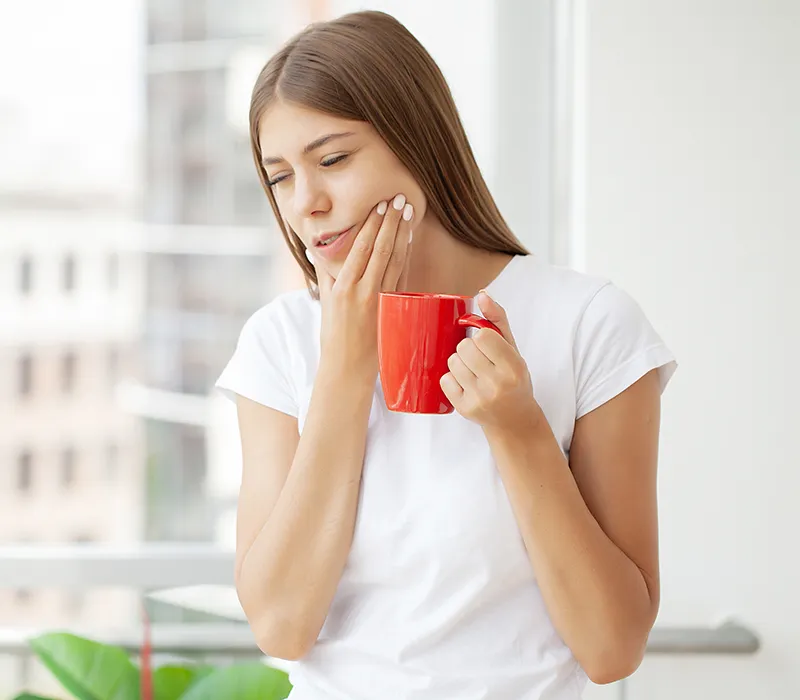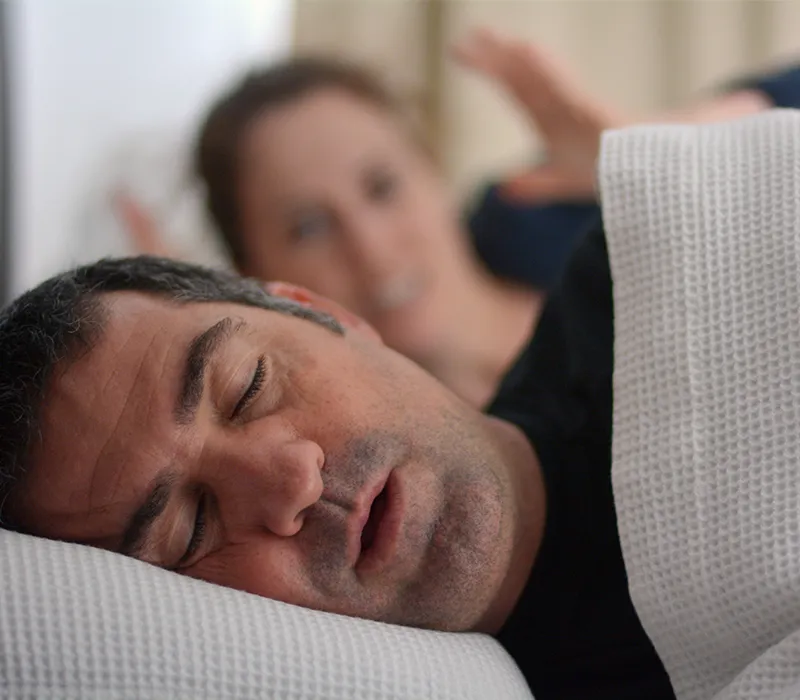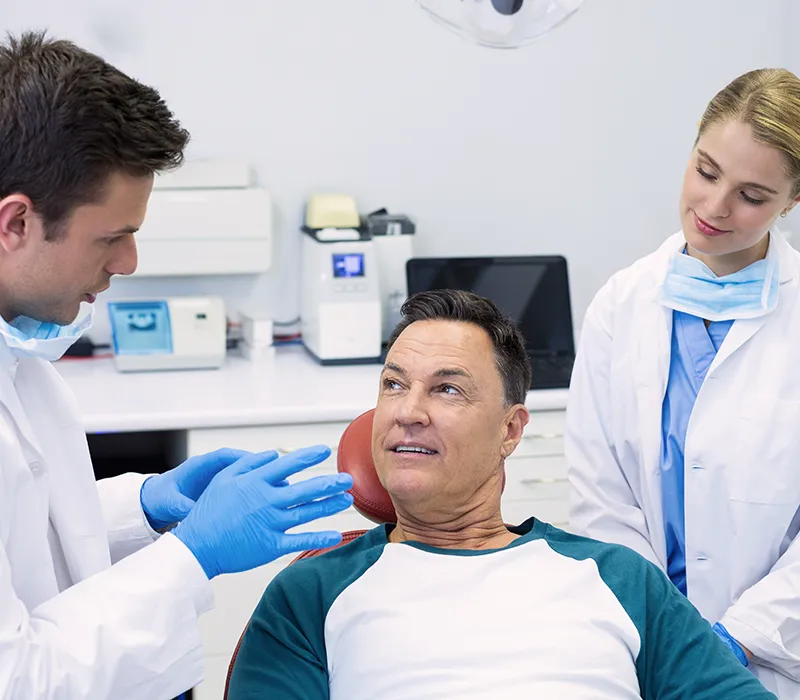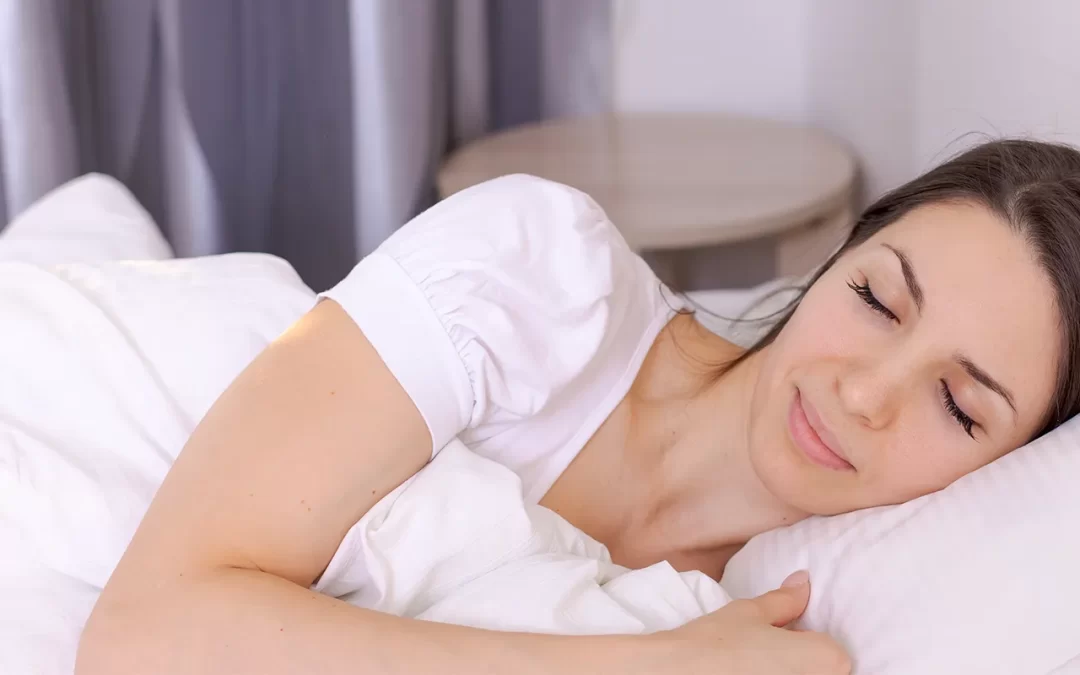Teeth grinding is a common dental issue that can seriously affect oral health in a range of ways that you may not anticipate. With impacts from tooth damage to TMJ (The temporomandibular joint) disorder, and even fatigue, this involuntary habit can have unfortunate consequences. Even if you do not think you habitually clench, or grind your teeth, you may still be doing it unknowingly. Read on to learn about the symptoms, causes, prevention and treatment of this habit.
What is teeth grinding?
Teeth grinding, or bruxism, is the repetitive clenching or grinding of the upper and lower teeth. It can happen when awake or asleep, and often involves the tightening of the jaw muscles.
The more prevalent form of teeth grinding is sleep bruxism, which is frequently caused by stress, anxiety or sleep disorders like sleep apnoea. Awake bruxism is less common and can be caused by stress, anxiety or certain medications.
How common is bruxism?
What are the signs of teeth grinding?
People who grind their teeth while sleeping can exert over 110 kilograms of force without becoming aware until symptoms emerge. These can include:
- Worn-down, flattened or chipped teeth
- Noticeable notches on the edges of your teeth
- Increased tooth sensitivity
- An increase in tooth mobility or loose teeth
- Tongue or cheek indentations
- Pain or tightness in the jaw joint (temporomandibular joint or TMJ)
- Head, ear, neck, or jaw pain
- Facial muscle soreness
- Grinding noises heard by a sleep partner or family member
- Fatigue or sleepiness during the day due to disrupted sleep
- Difficulty in opening or closing your mouth fully
- Pain or discomfort when chewing or talking

What causes grinding habit?
Sleep disorders like sleep apnoea: Bruxism has been connected to sleep disorders, particularly sleep apnoea. Sleep apnoea is characterised by interruptions in breathing during sleep, resulting in oxygen deprivation. This can lead to teeth grinding as the brain attempts to open the airway and stimulate breathing.
Misaligned teeth or bite issues: Dental factors also contribute to bruxism. People with misaligned teeth or bite problems (malocclusion) may grind their teeth because they do not fit together correctly. They may grind their teeth to achieve a more comfortable and balanced bite, resulting in damage and wear.
Lifestyle factors such as alcohol and caffeine consumption: Lifestyle choices can also contribute to bruxism. Excessive alcohol and caffeine consumption, particularly close to bedtime, can increase the risk of teeth grinding. Both substances can interfere with sleep patterns and relaxation, increasing the chance that individuals will clench and grind their teeth.
Medications like antidepressants: Some medications, particularly antidepressants, can cause grinding and clenching as a side effect. This is primarily due to these medications’ effect on the central nervous system, which can affect muscle activity, including the jaw muscles.
Genetics: There is evidence that genetics may contribute to bruxism. You may be more susceptible to the condition if you have a family history of teeth grinding.
Stress and anxiety: Teeth grinding can be significantly influenced by emotional factors, such as stress, anxiety or suppressed feelings. Individuals under stress or experiencing anxiety may subconsciously clench and grind their teeth to release tension. This occurs frequently during both the day and night.

Psychological factors: Besides stress and anxiety, other psychological factors such as anger, frustration, or aggression may contribute to teeth grinding. Some individuals may grind their teeth as a subconscious way of expressing these emotions.
How is teeth grinding diagnosed?
Teeth grinding is typically diagnosed using a combination of methods. Your dentist or doctor (General Practitioner) can comprehensively examine your teeth, looking for signs of wear, chipping or damage. In addition, they may enquire about symptoms, including jaw pain, headaches and disrupted sleep patterns.
In some cases, a sleep study (polysomnography) may be recommended to monitor nighttime grinding episodes. This comprehensive approach helps in the accurate diagnosis and severity assessment of teeth grinding, allowing for the implementation of appropriate treatment and management strategies.
What are the treatments for teeth grinding?
Different treatment options are available for teeth grinding:
Stress management techniques: Stress is a significant contributor to teeth grinding. Therefore, learning stress management techniques can effectively reduce the frequency and intensity of bruxism episodes. Practices like yoga, meditation, deep breathing exercises and progressive muscle relaxation can help individuals relax and alleviate tension, potentially reducing the urge to grind their teeth.
Addressing underlying sleep disorders: If teeth grinding is associated with sleep disorders like sleep apnea, treating the underlying sleep condition is crucial. This may involve lifestyle changes, positional therapy, splint, continuous positive airway pressure (CPAP) devices or other interventions a sleep specialist recommends. Bruxism episodes can be reduced by enhancing sleep quality and treating the underlying cause.

Dental correction methods: In cases where misaligned teeth or bite issues are identified as the underlying cause of bruxism, dental correction methods may be recommended. Orthodontic treatment, such as braces and clear aligners, improves the alignment of teeth and bite alignment. Addressing these dental problems reduces the pressure on teeth, which can alleviate or prevent teeth grinding.
Medications: In severe cases of bruxism that do not respond to other treatments, a healthcare provider may consider prescribing muscle relaxants or medications to alleviate muscle tension and reduce the urge to grind teeth. However, medication is typically a last resort due to potential side effects.
Behavioural therapies: In some cases, behavioural therapies such as cognitive-behavioural therapy (CBT) may be beneficial, especially if stress or anxiety contributes to bruxism. CBT can help individuals identify and manage the triggers and responses associated with teeth grinding, leading to improved control over the habit.
Prescribed night guard: One of the most common teeth grinding treatments is using custom-fitted night guards. These are worn while sleeping and act as a protective barrier between the upper and lower teeth. Night guards help cushion the impact of grinding and prevent further damage to the teeth. They are typically prescribed and custom-made by a certified dentist to ensure a proper fit.
Common questions about teeth grinding and oral health
Who is at risk of teeth grinding?
Certain individuals are more prone to teeth grinding, including those who have:
- High stress or anxiety
- A family history of bruxism
- Certain medical conditions or take specific medications
- Neurological conditions such as Parkinson’s disease
- Excessive alcohol or caffeine consumption
- Recreational drug use
- A history of sleep disorders
- Unresolved anger or frustration issues
- An excessive tendency to chew gum or bite nails
When should I ask for help?
If you experience persistent symptoms such as tooth wear, jaw pain or disrupted sleep, you must seek assistance from your dentist or healthcare professional. Timely intervention can prevent further damage and enhance your oral and overall health.
What are the effects of teeth grinding on oral health?
Teeth grinding be detrimental to your oral health, causing a range of issues including:
- Enamel wear and teeth chipping
- Cracked or fractured teeth
- Jaw pain and temporomandibular joint (TMJ) disorders
- Headaches and facial pain
- Disrupted sleep patterns
- Gum recession or irritation
- Loosening or loss of teeth
- Increased tooth sensitivity to hot or cold temperatures
- Changes in the appearance of the face, including a squared-off jawline
- Earaches or ringing in the ears (tinnitus)
- Neck and shoulder pain due to muscle tension
- Worsening of existing dental work, such as crowns or fillings
- Impaired speech or difficulty in chewing food properly
- Low quality of life due to chronic pain and discomfort
How long does teeth grinding last?
For some people, teeth grinding can be an occasional occurrence; while for others it may become a chronic problem. If left untreated, it can worsen over time, leading to more severe dental problems.
What age groups are most prone to bruxism?
Bruxism can affect individuals of all ages, but it is more commonly observed in children and young adults. It typically decreases with age, but some individuals may experience it into adulthood.
How do I prevent teeth grinding?
- Practise good sleep hygiene to ensure quality sleep
- Reduce or manage anxiety and stress through counselling or relaxation methods
- Avoid alcohol and caffeine, particularly close to bedtime
- Limit the consumption of hard or chewy foods, especially in the evening
- Consider physical therapy or exercises to relax jaw muscles
- Engage in stress-reducing activities such as yoga or meditation
- Consult with your dentist for a custom night guard or other appropriate treatment

Take action against teeth grinding for better oral health
Teeth grinding should not be taken lightly, as it can significantly impact your oral health and overall quality of life. By deeply understanding the root causes, potential consequences and effective preventative measures, you can protect your teeth and maintain a beautiful smile.
If you suspect that you or a loved one may be experiencing teeth grinding, consulting your dentist or GP is a crucial step in ensuring optimal oral health and well-being.



